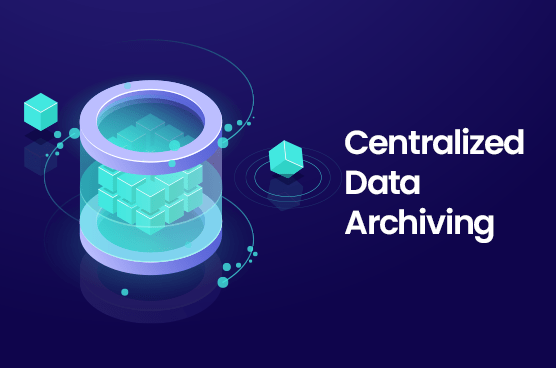Unlocking the value of data with a centralized data archiving strategy
Data Growth
The rapid increase in application and unstructured data leads to siloed and unmanaged data. As data accumulates, it becomes difficult to access and analyze, hindering decision-making processes.
Regulatory Compliance
With the rise of stringent regulatory requirements, businesses must effectively manage multiple data retention life cycles. Failure to comply can result in severe penalties and reputational damage.
Technical Debt
Aging application infrastructures combined with limited data migration capabilities create technical debt, complicating data management. This can lead to inefficiencies and increased operational costs.
Data Accessibility
Isolated data silos hinder access to critical insights, impacting business outcomes and analytics workflows. Without a cohesive strategy, organizations struggle to leverage their data to its full potential.
Data Storage Efficiency
By moving infrequently accessed data to lower-cost storage, organizations can optimize their storage utilization and reduce costs.
Data Enrichment
Data archiving enhances categorization, e-discovery, and analytics capabilities, leading to better insights and informed decision-making.
Corporate Compliance
Effective data retention management ensures adherence to corporate and regulatory standards, minimizing legal risks.
Application Retirement
Data archiving facilitates the decommissioning of outdated applications, helping organizations reduce technical debt and streamline their IT environment.
Centralize Data Management
A centralized approach improves lifecycle management of data across on-premises and cloud environments, ensuring consistency and reliability.
Optimize Data Placement
These solutions enhance operational efficiencies in file systems, databases, and applications, allowing for better resource allocation.
Support Multi-Vendor Environments
Data archiving solutions can address the diverse nature of applications and data types with integrated solutions, making them adaptable to various organizational needs.
Improved Data Accessibility
Centralized archiving enhances access to critical data, facilitating informed decision-making and driving business growth.
Operational Efficiencies
Streamlined data management processes reduce storage requirements and associated costs, leading to a more efficient IT environment.
Risk Mitigation
Effective data retention practices minimize legal risks and ensure compliance with regulations, protecting organizations from potential liabilities.
Reduced Technical Debt
By retiring legacy applications and infrastructures, organizations can create a leaner, more efficient IT environment, allowing them to focus on innovation.
Define Business Requirements
Clearly outline expected outcomes and data lifecycle management needs before vendor selection to ensure alignment with business goals.
Differentiate Solutions
Understand the distinction between data archiving and backup solutions to select the right approach that meets your organization’s needs.
Evaluate Vendor Capabilities
Assess potential vendors based on their support for various data sources and their alignment with your business requirements.
Ensure Transparency
Require vendors to provide clear information on data access, export capabilities, and costs associated with end-of-contract data migration.
Establish Cross-Functional Teams
Create teams that include diverse stakeholders to prioritize application retirement and data retention policies effectively.

